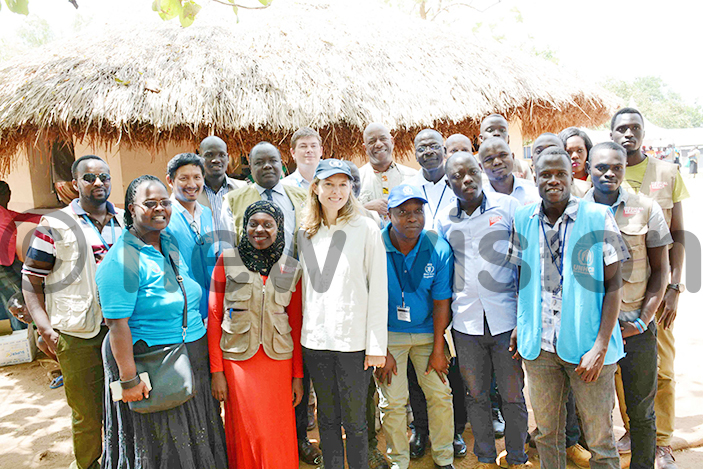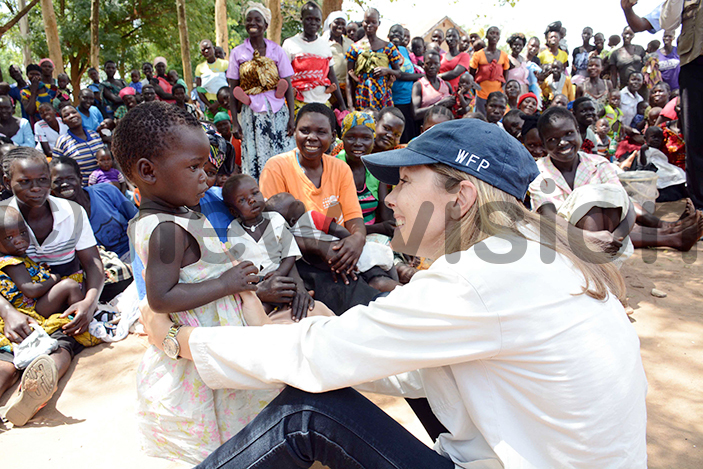Men in refugee camps to play role in family planning
The men would also be interested in disseminating information about maternal and child nutrition.
PIC: A twin mother feeds her babies at Mvepi refugee camp, Arua district. (Credit: Eddie Ssejjoba)
FAMILY PLANNING
ARUA - The Medical Teams International Uganda (MTIU), in collaboration with the World Food Programme (WFP), has embarked on mobilising men in Mvepi refugee settlement in Arua district to embrace family planning services.
The men would also be interested in disseminating information about maternal and child nutrition in Mvepi and other settlements.
Family planning has been a component of the health and nutrition programme for refugees where MTIU operate however, it involved mothers only.
During a recent visit to Mvepi by the Jordanian princess, Sarah Zeid, many South Sudanese refugee mothers told her they desired to take up family planning services but unfortunately their spouses did not welcome the idea because they were not involved.
The women on a nutrition programme, that prevents chronic malnutrition during pregnancy and lactating mothers as well as children between zero to five months, reported that men do not understand family planning.
This makes it impossible for the women to embrace it without the approval of their partners.

Members of the World Food Programme and MTIU Uganda with Princess Sarah Zeid at Mvepi refugee reception health facilility in Arua district. (Credit: Eddie Ssejjoba)
Over 3,000 mothers, 70% refugees from South Sudan and 4,000 children out of which 1000 were locals, receive nutrition and fortified foods on a monthly basis in Mvepi, according to Twaha Tabata, a nutritionist with MTIU.
He said cases of malnutrition among children and mothers in the settlement had remarkably reduced since February 2017 when the settlement was opened.
MTIU has been working with South Sudanese refugees in Uganda since 2013, when women and children began moving into the northern part of Uganda to flee a conflict between warring factions.
The settlement currently has about 60,000 refugees but the healthy facility at the reception receives a sizeable number of nationals who turn up for similar services on maternal nutrition.
"I'm happy that women here are asking for family planning services for fear of having more children.
"They also want their husbands to be allowed to attend health education sessions by the medical teams so that they too benefit from the services," Princess Zeid said.
"It is a unique integrated arrangement where nationals and refugees converge in the same place to receive services especially about malnourished children and women, which allows service providers to treat and follow individuals, I have come across lots of happy stories here," Zeid added after the tour.

Princess Sarah Zeid with a child during the nutrition prgramme by World Food Programme and MTIU at Mvepi, Arua district. (Credit: Eddie Ssejjoba)
She said she was happy to see examples of well-breastfed babies at the reception facility and asked the health providers to bring men on board as soon as possible.
Zeid said she was also impressed with the government's policy of welcoming refugees and providing them services alongside WFP and other partners.
"I'm impressed with the generosity extended to refugees by the government of Uganda regardless of where they come from, it is a unique leadership, extraordinary and a good example to the rest of the world."
Dr. Allan Amandu, the MTIU co-ordinator stated that in the new approach, they would encourage more men to accompany their wives on maternal visits so that they too can benefit from other services like HIV screening, syphilis tests, among others.
"It should be the men to encourage their wives to make the required antenatal visits and draw delivery plans together.
"They should also be the ones to support their wives to deliver from a healthy facility," he said.